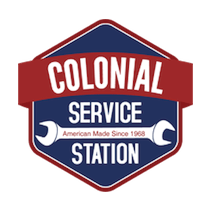

Your vehicle’s performance relies on a complex interplay of various systems. Among these, the fuel system plays a crucial role in keeping your engine running smoothly. In this month’s blog post, we explain the intricacies of the fuel system, highlight its primary components, common malfunctions, and essential maintenance practices.
The Fuel System Components
- Gas Tank: The fuel system begins with the gas tank, which stores gasoline. Most modern vehicles feature high-density plastic tanks, while older ones may have steel or aluminum tanks. Rust can be an issue with metal tanks, so it’s essential to know your vehicle’s type of tank material.
- Fuel Pump: Attached to the gas tank, the fuel pump draws gasoline and maintains pressure throughout the fuel lines. It also ensures the fuel remains at a safe temperature.
- Fuel Lines: These pipes transport fuel from the tank to the engine. Any blockage or damage can disrupt the entire fuel delivery process.
- Fuel Filter: Positioned along the fuel line, the fuel filter removes sediment and contaminants from gasoline before it reaches the fuel injectors.
- Fuel Injectors: These nozzles spray gasoline directly into the intake manifold or cylinders. Achieving the right air-fuel mixture is crucial for combustion efficiency.
- Carburetor (in older vehicles): Carburetors mix fuel and air before sending the mixture to the engine cylinders. However, modern vehicles predominantly use electronically controlled fuel injectors for better efficiency.
Common Malfunctions and Signs
- Dirty Fuel Filter: A clogged fuel filter restricts fuel flow, leading to poor performance, reduced fuel efficiency, and engine misfires. Look out for sluggish acceleration and stalling.
- Fuel Pump Malfunction: A failing fuel pump can cause sudden engine shutdown, hesitation during acceleration, or difficulty starting the vehicle.
- Fuel Injector Failure: When injectors become clogged or malfunction, you will notice rough idling, decreased power, and increased emissions.
- Fuel Leaks: Leaking fuel lines pose safety risks and can lead to poor fuel economy. Check for fuel odors or visible leaks under the vehicle.
Maintaining Your Fuel System
- Regular Cleaning: Use fuel system cleaners periodically to prevent debris buildup. Add them to your gas tank and let the engine run to clean injectors, valves, and other components.
- Fuel Quality: Use high-quality gasoline to avoid sediment accumulation. Avoid running your tank too low, as it can draw sediment from the bottom.
- Replace the Fuel Filter: Follow your manufacturer’s recommendations for filter replacement intervals (usually every 30,000 to 60,000 miles).
- Check for Leaks: Inspect fuel lines and connections for signs of leaks. Address any issues promptly.
- Professional Inspection: Schedule regular check-ups with a service professional. They can diagnose early signs of fuel system problems and recommend necessary repairs.
Remember, a well-maintained fuel system ensures optimal performance, fuel efficiency, and longevity for your beloved vehicle. Treat it right, and your car will thank you with reliable miles on the road! If you would like to have your fuel system inspected, contact the service professionals at Colonial Service Station to schedule an appointment.
